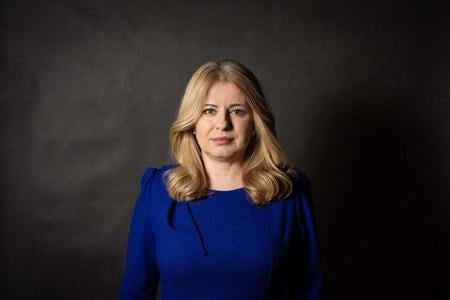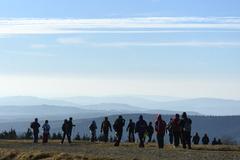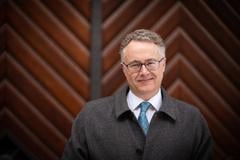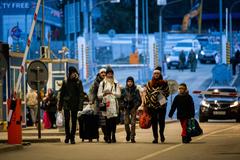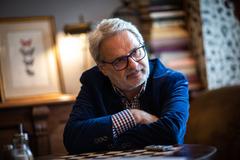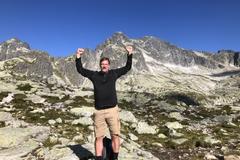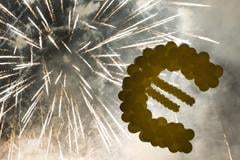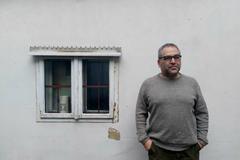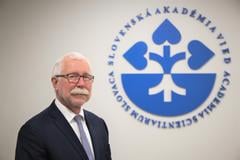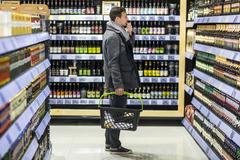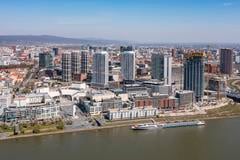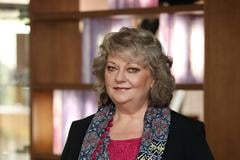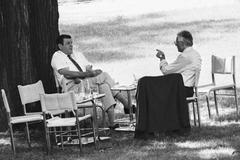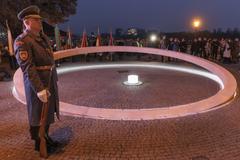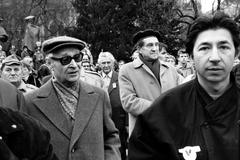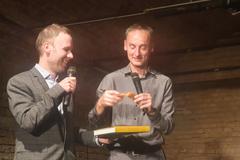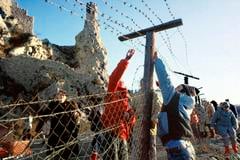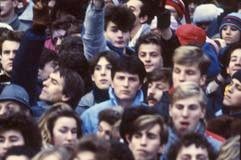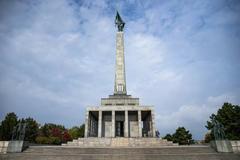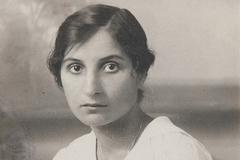History, page 7
Zuzana Čaputová: I'm tired. But I still believe there's hope to change things for the better (interview)
I hope that the elections will be an opportunity for people to show that they have not given up on our country, says the president.
Slovakia has made it, often against the odds
Having lived through 2022, the present look back may be the dose of hope that we all need.
Don't worry, Slovakia, you'll do well
British Ambassador Nigel Baker goes back to 1993 and greets the newborn Slovakia from the future.
Timeline: From a brush with authoritarianism to the election of a Slovak Erin Brockovich
Slovakia’s 30 years of ups and downs.
Foreigners like it here because they do not have high expectations
But we Slovaks know we could have done better, says veteran analyst Marián Leško.
A tale of two journeys
Tracing back along the same route as the bus 30 years before, the High Tatra Mountains took my breath away, again.
In its thirties, it's time for the Slovak economy to start using its brain
Slovakia has eventually done what it had to do in the 1990s. Now it needs a new wave of reforms.
The Canadian bookseller who took a chance and found home in post-Mečiar Bratislava
In the Slovak capital, where he planned to stay for a year, Ben Pascoe runs a popular café that tourists rarely stumble across.
To play in the top league, you need the best players. This has not happened for Slovak science yet
Science in Slovakia has changed a lot in the past 30 years.
Slovaks can afford much more than they could 30 years ago
Independent Slovakia was founded during a wrenching economic transformation.
Bratislava as a capital city: Changed skyline, but iconic buildings lost
‘Lukewarm’ approach by authorities and wild privatisation left their mark.
All Slovaks are passive bilinguals, linguist says
Thirty years after divorcing, Czechs and Slovaks still understand each other without hesitation.
Citizens increasingly doubtful over Slovakia's independence ahead of its 30th anniversary
People's view affected by current politics, experts say.
Bratislava unveils the Tomb of the Unknown Soldier
President: Freedom must be constantly protected.
Alexander Dubček - a symbol of the fight for democracy
Slovak remembered worldwide for role in Prague Spring.
Historical photo shows splitting of family so that at least someone survives WWII
Descendants of old Bratislava families share family photos and memories.
The gains of 1989 cannot be taken for granted
The language of its memories is velvety, but our non-violent revolution required real effort.
Velvet Revolution falling out of favour
Less than half see end of communist regime in positive light, new poll shows.
Slavín is a Russian foot set in Slovakia, says historian
The Kremlin exploits the Slavín monument to this day.
She knew all Bratislava monuments, yet was told to learn to speak Slovak
Gisela Weyde's work was long forgotten.
- Slovakia brings back border checks with Hungary and Austria starting April 8
- China’s answer to Tesla has landed in Slovakia
- Chicken Jockey! Chicken Jockey! Chicken Jockey! Video
- Local fuming over plans to burn waste near famous mineral springs
- News digest: PM Fico questions Europe's rearmament Photo
- Záhorie uncovered: Slovakia’s quiet corner full of surprises Photo
- Parts of Bratislava to witness significant development in near future
- Last Week: And then they came for the NGOs
- Slovakia brings back border checks with Hungary and Austria starting April 8
- China’s answer to Tesla has landed in Slovakia
- News digest: PM Fico questions Europe's rearmament Photo
- Parts of Bratislava to witness significant development in near future
- Last Week: And then they came for the NGOs
- Local fuming over plans to burn waste near famous mineral springs
- Slovak ice-hockey sensation helps her team secure US title Video
- Chicken Jockey! Chicken Jockey! Chicken Jockey! Video
- Last Week: And then they came for the NGOs
- What abides: Giving a shit
- Slovakia brings back border checks with Hungary and Austria starting April 8
- Štítnik resumes hand-crafting Christmas ornaments after 25 years
- A partnership centuries in the making
- Strange romance: Slovak leaders’ affection for Russia has yo-yoed
- From Mexico to Slovakia – finding a new life Audio
- Foot-and-mouth outbreak hits major Slovak cattle farm near Austrian and Czech borders Photo
- What abides: Giving a shit
- Last Week: And then they came for the NGOs
- Foot-and-mouth outbreak hits major Slovak cattle farm near Austrian and Czech borders Photo
- Slovakia brings back border checks with Hungary and Austria starting April 8
- From Mexico to Slovakia – finding a new life Audio
- Strange romance: Slovak leaders’ affection for Russia has yo-yoed
- Štítnik resumes hand-crafting Christmas ornaments after 25 years
- Weekend: On your marks, get set... Running and marathon season beckons
- A café in an ice cellar, sand dunes and a flower shop at the border
- Záhorie uncovered: Slovakia’s quiet corner full of surprises Photo
- Chicken Jockey! Chicken Jockey! Chicken Jockey! Video
- Local fuming over plans to burn waste near famous mineral springs
- News digest: PM Fico questions Europe's rearmament Photo
- Slovak ice-hockey sensation helps her team secure US title Video
- China’s answer to Tesla has landed in Slovakia
- Parts of Bratislava to witness significant development in near future More articles ›

